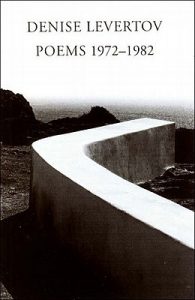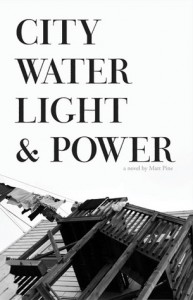I’ve been tagged in the My Writing Process Blog Tour by Ann Hedreen, filmmaker, soon-to-be author of Her Beautiful Brain, and all-around great human being.
What am I working on?
My first novel, Polska, 1994 publishes this Thursday and I want to be able to tell you about the gorgeous next novel I have queued up and waiting for the masses to demand it. But I’m also realizing that there isn’t a lot of conversation around the postpartum slump that some authors (me!) experience.
I spent six years perfecting that book and it’s based on ideas I’ve been mulling for almost two decades. I’m not saying I don’t have another book in me, I do (more on that in a second), but the transition from gorgeously polished work to starting over with a blank page is flat-out brutal. And I just wanted to acknowledge that for a minute before telling you about projects that are so nascent they are basically ephemeral right now. They may well take the shape I describe and they might morph and change into something else entirely. My challenge is to not get impatient with myself and force them into being something they either aren’t or aren’t ready to be.
There are two projects I’ve been playing with since finishing Polska, 1994. One is a second novel entitled Hungry Ghosts. I sometimes say this book is about the way we change ourselves to be loved. I often believe this book is my final embrace of feminism. Right now it’s 50,000 words of starts and ideas. I’m hoping there are some gems in there, but it’s not fair to call it a novel yet. I have a structure in mind, but I’ve had many structures in mind in the nearly four years I’ve been mulling the idea. I think it will be an experimental book that draws (somehow) on the style of Alain Robbe-Grillet, but it’s really too early to say.
The second project is a book of poetry entitled Port Townsend Elegy which investigates my unfurling as an artist (and human) in grad school as well as my deep personal connection to Port Townsend, WA. This book is actually a lot more formed in terms of drafts (thanks to a lovely writing residency at The Whiteley Center in Friday Harbor), but it’s my first foray into poetry since high school and I don’t trust yet that I have the craft to pull off the book in the way I want to. So I’m learning about poetry as I write and rewrite the poems in this book. I don’t know when I’ll be comfortable to let it fly, but I do know this book is far from ready for the public eye.
I’ve also been considering writing a memoir about how living abroad changed my life. That sounds much more pat than it is. Maybe? That project is still just a glimmer in my eye.
How does my work differ from others of its genre?
This is actually a really good question, because the way we write tends to determine the genre we write in. I write in what I consider to be a literary style, which means I pay a lot of attention to observation and the language that observation is expressed in. Plot is never the first thing I think of when writing (though it’s something I focus a lot on when editing because it is important to a certain extent). I find the writers I am most closely drawn to are novelist-poets, so I hope I don’t differ from them all that much.
But saying that your work is just like someone else’s rankles, doesn’t it? I suppose my unique “blend” comes from the fact that I read so very widely, I pay so much attention to the language (the various languages I’ve spoken over the years has taught me a syntactic flexibility that I’m proud of), and also that I’m deeply interested in culture and how that affects a character’s circumstances. That last bit is most often expressed as an obsession with oppression which leads us naturally to the next question…
Why do I write what I do?
Micheline Aharonian Marcom once said, “Write into the heat.” She also talked a lot about obsessions. After putting the final, final edit on Polska, 1994 this weekend, I can’t see how people write literature about things they aren’t obsessed with, because to work that deeply in a project for so long, you’d murder the writing (or perhaps a family member) if the story wasn’t something you needed to tell.
My obsession is oppression–both political and personal. I’m a quiet person which means it’s often easy for people to run themselves right over me (intentionally or not). I don’t usually push back too hard because I have a strong sense of who I am (and am not all that concerned with what others think). But still, over time you want someone to notice who you are and acknowledge that you matter. I especially want some sort of shared purpose and understanding and I’m learning that in order to get that, I have to assert myself more.
And I’ve lived in both Chile and Poland–experiences that changed my perspective–helped me see how governments and corporations sometimes run right over people. Lately I’ve been thinking a lot about how oppression also happens on a gender level.
I write about becoming. About rising up and blossoming. I write about creating the world that I want to live in and the ways I can and cannot help others live in that world too.
How does your writing process work?
I could tell you about how I split up my day to get the most writing time possible while still holding down a full time job. I could write about the hour of writing time in the morning I too often sleep through or the hour in the evening I often give up because I just want to see my husband before I pass out on the couch.
Instead I want to write about ideas and how a project comes about. A poem or story starts for me with a nagging question or feeling. Something that isn’t sitting just right either because it’s something that feels wrong or even simply alien (without judgment). Oftentimes I’ll mull it over for a significant period of time (though not always decades) and fuss about it and read about it and talk about it. But nothing ever feels resolved until I finally sit down with paper and pen. It’s funny how even a few minutes can make everything feel all better or more comprehensible or manageable. I don’t solve the problem there in the first few minutes or in the first draft (or really ever), but each time I sit down and write about one of these rubs, I learn more about it and how I feel about it. I keep digging and learning and often discover that the “problem” is something entirely different than I even imagined. Eventually I have a narrative or a pretty good capture of the feeling and then I edit, edit, edit. The honing of language and shaping of elements that happen during the editing process are very important to the end product and with Polska, 1994, I went through over twenty drafts to get it just right.
By nature, a blog tour should have a “here’s who’s up next,” but it’s been a crazy busy month and every chain letter has to end somewhere, right? Instead, here are a few of my favorite bloggers (besides, Ann, of course):
SILENCE & HONEYSUCKLE by Gwendolyn Jerris
PEACE & CENTER by Natasha Oliver
PURPLE HOUSES by Nikki Kallio
REWRITING HISTORY by Roxana Arama
A LITTLE ELBOW ROOM by Kim Mayer
They may not be answering this same set of questions directly, but their work nourishes me all the time and I think it will do the same for you.
 There are many ways I will fall in love with a book.
There are many ways I will fall in love with a book. 